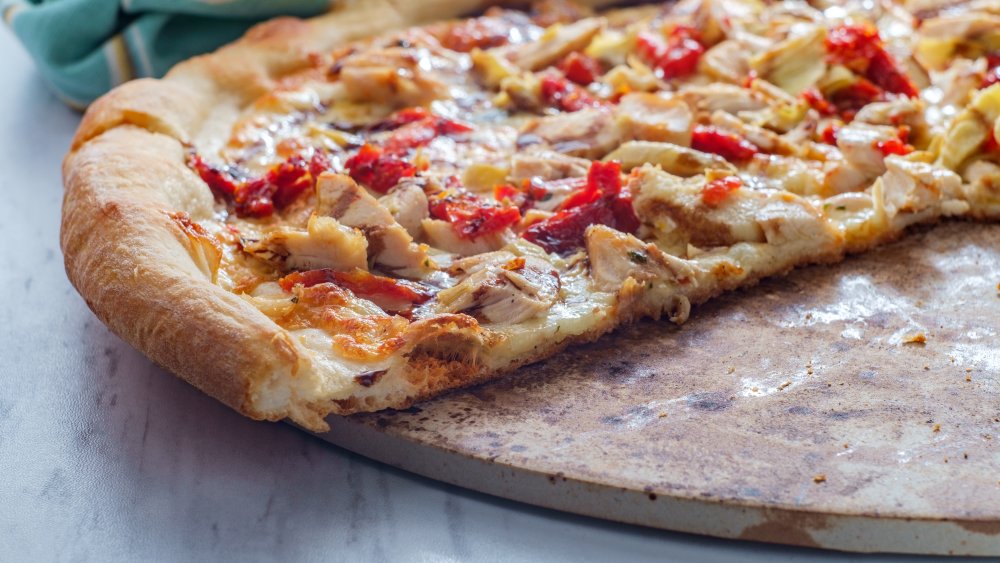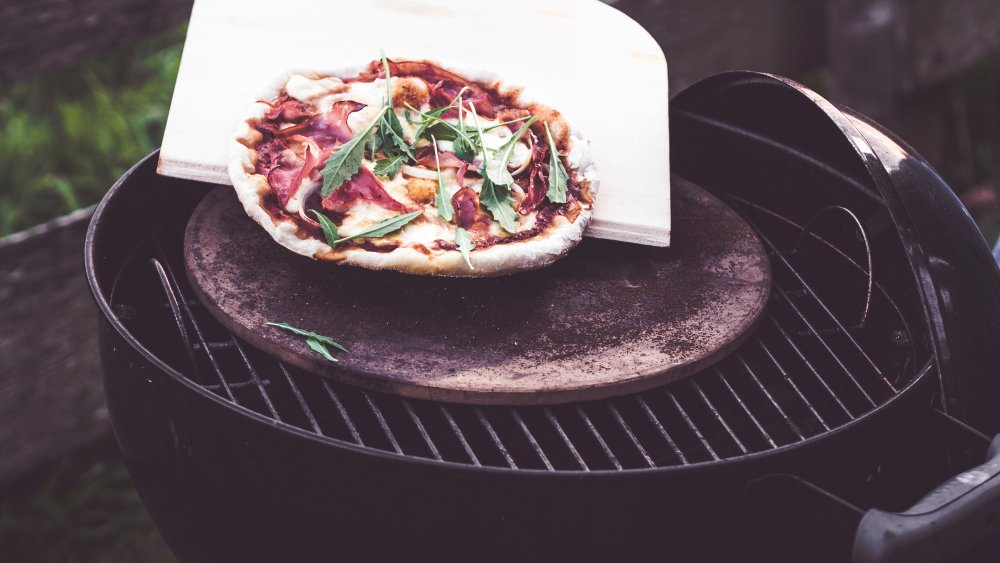The Real Reason You Should Cook Pizza On A Pizza Stone
It's no wonder that pizza remains one of America's favorite foods — it's shareable, versatile, and endlessly-customizable. But when you take the task of pizza making into your own hands (and oven), you might experience a less-desirable outcome than the pies you purchase from your favorite pizzeria. From soggy bottoms, to burnt toppings, a seemingly-simple food like pizza sure harbors a lot of potential pitfalls. That's where a pizza stone can come to the rescue.
Since most of us don't have the luxury of having backyard wood-fired ovens, home pizza cookers are probably working with a conventional oven or an outdoor grill. Unfortunately, according to Pizzacraft, home ovens and grills "lack the initial high heat" for crispy-crust perfection, while a pizza stone enables immediate "high heat transfer," like you'd find in an old-school brick oven. So, after preheating the stone, the pizza dough instantly comes into contact with a high-temperature surface, which crisps the crust, enables quicker cooking, promotes a more even distribution of heat, and creates overall more consistent pizza making results.
The benefits and challenges of using pizza stones
According to The Spruce Eats, a pizza stone is made of stone or ceramic, and is available in various levels of thickness. A pizza stone differs from other cooking surfaces (such as a metal pan) because it contains "tiny cracks and crevices" that more easily "allow evaporating steam to escape," which dries and crisps the crust.
If you don't own one already, or are working with a slim budget, you can replicate the attributes of a pizza stone by making your own with a few unglazed ceramic tiles from the hardware store (via Wonder How To). However, if you are going to invest in a dedicated pizza stone, why not maximize its multitasking abilities? You can use it for more than just pizza — think roasted veggies, frozen foods, homemade chips, or bread baking, to name just a few possibilities (via Taste of Home).
Pizza stones do have downsides, like super-specific cleaning methods to scrub off any accumulated gunk, or the possibility of cracking, according to Pizzacraft. Some home pizza cooks have sworn them off altogether (via Kitchn). Others have questioned whether there's truly enough difference in the final pizza product to choose a stone over a baking pan (via Popular Mechanics). But for plenty of pizza aficionados, getting (pizza) stoned is the best way to achieve an even, crispy, and consistent bake when firing up pies at home.

